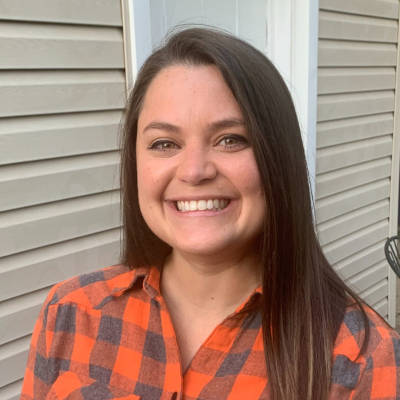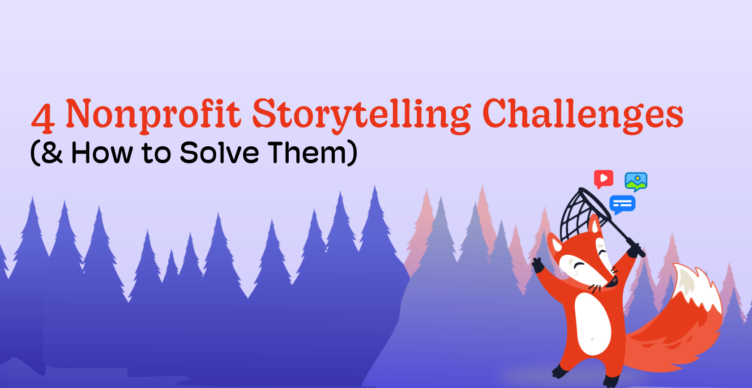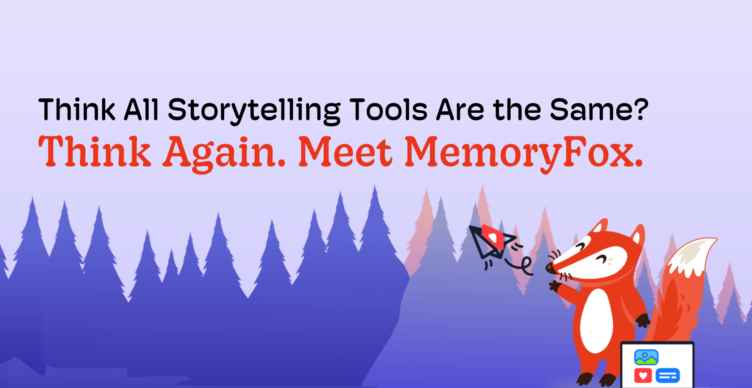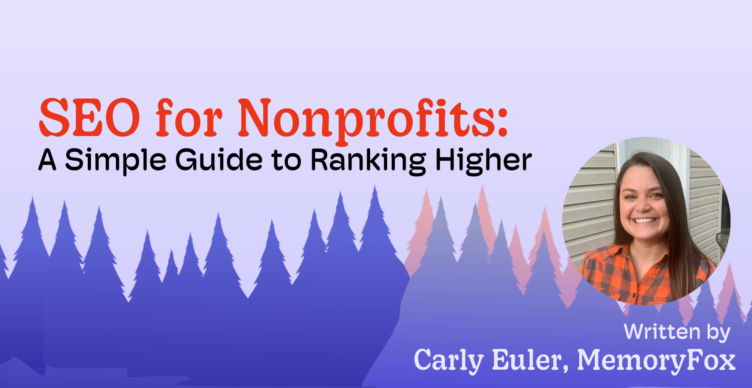Ethical Storytelling
4 Expert Tips for Navigating Nonprofit Storytelling Consent
In the fourth installment of MemoryFox’s Narratives With Integrity series, a group of expert panelists tackled some of the toughest questions surrounding consent as it pertains to nonprofit storytelling. Questions like:
- “When is the best time to collect consent during the interview/storytelling process?”
- “Do you think consent “expires”? At what point should we be sunsetting materials?”
- “What do you do if someone previously gave consent and you publish their story and then they retract it?”
- “Is written consent always needed? Can verbal consent be adequate?”
This complicated, multi-faceted topic became one of the major themes of the 2023 Ethical Storytelling Report, and continues to be a constant conversation between the MemoryFox team and our storytellers. And while we are continuing to learn new strategies and collect additional advice, one message has always been clear—there is no ethical way to share stories without obtaining proper, informed consent.
But what does proper consent look like in practice? Below are my four key takeaways, one from each panelist, from the event – Each offering insights on how nonprofits can navigate the nuances of consent in their storytelling.
1. Give Storytellers Time to Reflect on Their Consent – Kristi Scott
One way to jump-start ethical consent collection is through the consistent use of five simple words:
You can think about it.
Kristi Scott kicked-off our panel discussion by highlighting how vital it is to provide storytellers time and space to reflect on their decision to share their story. Consent is not a one-time transaction, and even if someone initially agrees, they should know they can change their mind at any time. She advises nonprofits to say “You can think about it,” to their storytellers, signaling that there are no hard deadlines on their decision. This simple gesture can build trust and give storytellers the agency they deserve in the process.
Kristi is an email fundraising consultant who’s work centers on creating community-centric fundraising strategies, and her advice reminds nonprofits that thoughtful, ongoing consent is key to a respectful and ethical relationship with storytellers.
2. Set Expiration Dates for Consent – Diana Farias Heinrich
Diana Farias Heinrich, CEO of Habrá Marketing, explored the important question: Does consent expire? Her suggestion is to start with a one-year limit on consent to use a story. Checking back in on an annual basis ensures nonprofits regularly connect with storytellers, and even allows space for the storyteller to provide updates!
Having a regular line of communication is especially important if you plan to use the story for a new purpose or in a new medium. For Diana, who specializes in helping nonprofits with limited resources tell their stories, consent should be seen as a fluid, ongoing conversation, not a one-and-done agreement. By building expiration dates into consent forms, nonprofits can ensure their practices remain ethical and aligned with the storyteller’s wishes, which can change from year to year.
3. Just Because It’s Legal, Doesn’t Mean It’s Ethical – Allie Levene
Allie Levene, an attorney and founder of Levene Legal, emphasized that nonprofits need to go beyond the legal requirements of consent forms. “Just because it’s legal, doesn’t mean it’s ethical,” she explained.
Allie outlined a few critical elements to include in consent forms to safeguard both the storyteller and the organization:
- Clear Usage Terms: Explicitly state how the story will be used, breaking it down by specific projects and platforms to avoid any ambiguity.
- Revocation Clause: Allie stressed the importance of explaining what it means if a storyteller revokes their consent. This clause should detail that the organization will make every effort to stop using the story in future materials, but that they are unable to guarantee complete removal from all public domains.
- Story “Ownership” Guidelines: Considerations for intellectual property, compensation, and privacy should be clearly outlined in the consent form. This transparency builds trust and ensures the storyteller understands their rights and protections.
Allie’s legal expertise reminds nonprofits that ethical storytelling requires more than just a signature — it’s about empowering storytellers with full understanding and control over their contributions.
4. Respectfully, Nobody Owes You Their Story – T. Clay Buck
In addition to the numerous strategies shared throughout the entire session by Clay, perhaps the most impactful reminder came when asked for his final piece of advice to fundraisers:
“Nobody owes you their story.”
While storytelling is a critical tool for inspiring donors, nonprofits must remember that asking for someone’s story is a privilege, not a right. Clay urged nonprofits to create a compassionate environment where storytellers feel supported, respected, and never pressured to share. His experience in fundraising, data systems, and nonprofit management affirms that ethical storytelling must center the needs and autonomy of the storyteller above all.
Overall, this panel discussion reminded me that there are no “right” answers to these challenging questions – We are all learning, together. With a commitment to transparency and compassion, we can continue to find consent solutions that work for a nonprofit’s unique circumstances. Finally, while these are my top four takeaways, I encourage you to watch the session for yourself to see what sticks with you.

About the Author
Carly Euler
Marketing Director, MemoryFox
Carly comes from the nonprofit world ready to elevate the hundreds of nonprofits in the MemoryFox community. She currently serves as the Co-Chair of the Wily Network’s Young Professionals Association, and has previously held positions at the Breast Cancer Coalition of Rochester, the Code of Support Foundation, Kenya Lacrosse Association, and the BOMA Project, where she has specialized in marketing, communications, and fundraising. Storytelling has been an integral part of each role.




